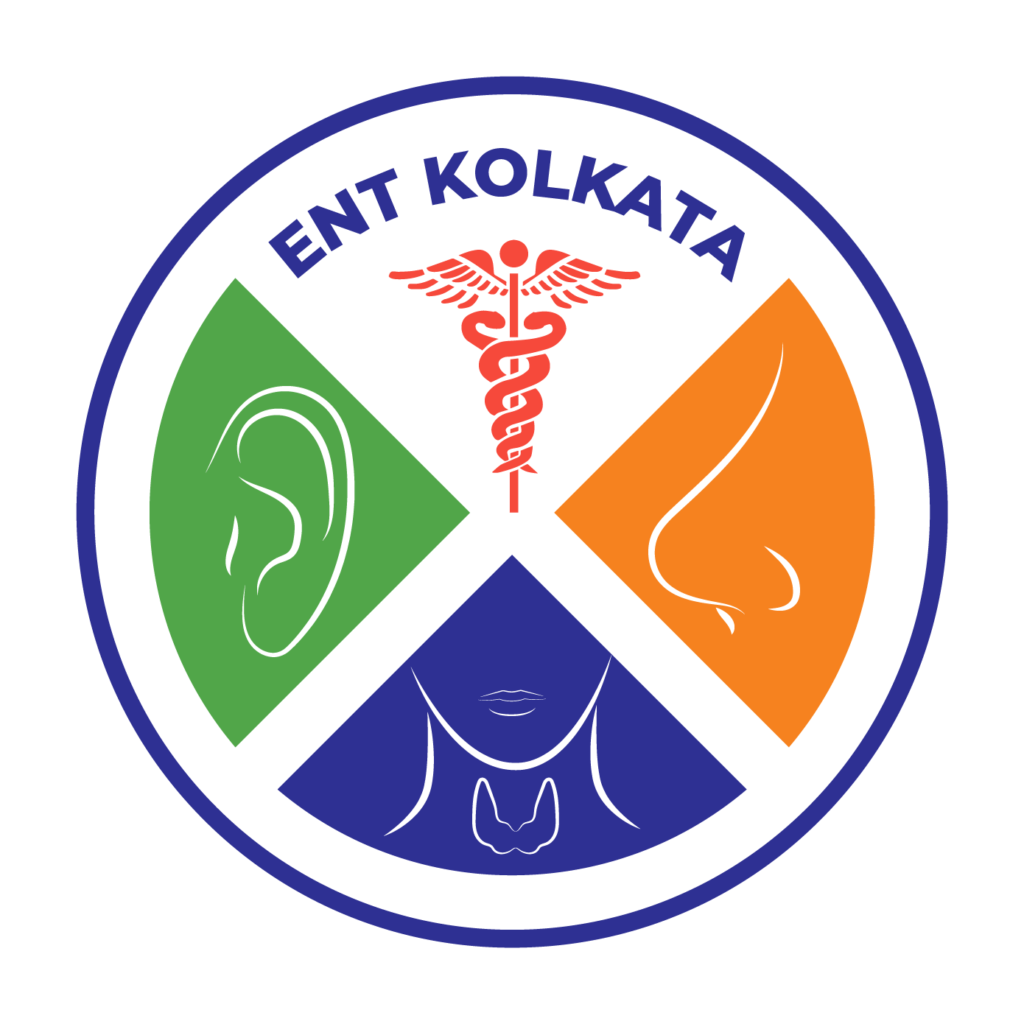Disclaimer: This content is for educational purposes only. Always consult qualified medical professionals for proper diagnosis and treatment of your specific condition.
Weather-related sinus symptoms affect millions of individuals worldwide, creating predictable patterns of discomfort that coincide with atmospheric changes. Understanding the relationship between meteorological conditions and sinus function requires comprehensive medical knowledge about atmospheric pressure effects on respiratory physiology. Medical professionals such as ENT Specialist in Kolkata possess specialized expertise in evaluating these weather-sensitive conditions and their impact on patient symptoms.
Medical Understanding of Barometric Pressure Effects
Atmospheric pressure variations directly influence the air-filled spaces within the paranasal sinuses, creating pressure differentials that can trigger discomfort and pain in sensitive individuals. Medical research demonstrates that rapid barometric pressure changes can affect sinus ventilation and drainage patterns.
ENT Specialists in Kolkata explain that healthy sinuses normally equilibrate with atmospheric pressure changes through small openings called ostia. However, when these openings are narrowed due to inflammation, anatomical variations, or other obstructive conditions, pressure equilibration becomes impaired, leading to symptoms.
The human body contains multiple air-filled spaces including the paranasal sinuses, middle ear cavities, and respiratory system, all of which can be affected by atmospheric pressure variations. Individuals with compromised sinus function experience more pronounced symptoms during weather transitions.
Weather Pattern Medical Correlations
Medical professionals recognize specific meteorological conditions that commonly trigger sinus symptoms in susceptible individuals. Understanding these patterns helps patients and healthcare providers anticipate and manage weather-related symptoms more effectively.
Low Pressure System Medical Effects
Approaching low-pressure weather systems typically create dropping barometric pressure that can trigger sinus symptoms hours or days before visible weather changes occur. This pressure drop can cause expansion of air within blocked sinuses, creating pain and pressure sensations.
Storm systems, whether thunderstorms, snowstorms, or hurricanes, often bring rapid pressure changes that affect individuals with sensitive sinus systems. The rate of pressure change may be more significant than absolute pressure levels in triggering symptoms.
High Pressure System Medical Impact
High-pressure weather systems generally create more stable atmospheric conditions that may provide relief for weather-sensitive individuals. However, the transition periods between high and low-pressure systems often trigger the most pronounced symptoms.
Cold fronts typically bring rapid atmospheric changes that can affect sinus function, while warm fronts may create more gradual pressure transitions that cause fewer acute symptoms in sensitive individuals.
Humidity Medical Considerations
Atmospheric humidity levels significantly influence nasal and sinus mucosal function, affecting both symptom development and resolution in weather-sensitive patients. Medical understanding of optimal humidity ranges helps guide environmental management strategies.
Low Humidity Medical Effects
Dry atmospheric conditions, particularly common during winter months or in arid climates, can cause nasal mucosal drying that impairs normal ciliary function and mucus production. This drying effect can worsen existing sinus conditions and increase susceptibility to respiratory infections.
Indoor heating systems often create very low humidity environments that exacerbate nasal and sinus symptoms. Medical professionals recommend humidity monitoring and appropriate humidification to maintain optimal mucosal function.
High Humidity Medical Impact
Excessive atmospheric humidity can promote mold growth and dust mite proliferation, creating environmental allergens that trigger inflammatory responses in sensitive individuals. Humid conditions may also impair natural evaporation of nasal secretions.
Tropical climates or humid seasonal conditions require different management strategies compared to dry environments, emphasizing the importance of individualized treatment approaches based on local climate patterns.
Temperature Change Medical Effects
Rapid temperature fluctuations affect nasal and sinus physiology through multiple mechanisms including changes in air density, humidity capacity, and mucosal blood flow patterns that influence normal respiratory function.
Cold Air Medical Response
Cold, dry air can trigger nasal mucosal vasoconstriction and reduced secretion production, leading to nasal dryness and potential irritation. Individuals with sensitive respiratory systems may experience increased symptoms when exposed to cold atmospheric conditions.
Winter weather patterns often combine low temperatures with reduced humidity and increased indoor heating exposure, creating multiple environmental factors that can worsen sinus conditions simultaneously.
Warm Air Medical Considerations
Sudden warming trends can increase atmospheric humidity and promote allergen release from plants and molds, triggering allergic responses that worsen existing sinus conditions. Warm, humid conditions may also promote bacterial growth in susceptible individuals.
Air conditioning systems used during warm weather can create rapid temperature and humidity changes that affect nasal physiology, particularly when individuals move frequently between different environmental conditions.
Medical Management Strategies
ENT specialists employ various treatment approaches to help weather-sensitive patients manage symptoms and reduce the impact of atmospheric changes on sinus function and comfort levels.
Preventive Medical Approaches
Weather tracking and symptom anticipation allow patients to implement preventive measures before atmospheric changes trigger symptoms. Medical professionals recommend maintaining weather awareness and preparation strategies for sensitive individuals.
Environmental modification within homes and workplaces helps create stable atmospheric conditions that reduce exposure to triggering weather changes. Proper insulation, humidity control, and air filtration systems contribute to symptom management.
Medical Treatment Adaptations
Medication timing adjustments based on weather forecasts can help prevent symptoms before they develop. ENT specialists may recommend increasing anti-inflammatory treatments before predicted weather changes in highly sensitive patients.
Nasal saline irrigations become particularly important during weather transitions, helping maintain mucosal moisture and remove inflammatory debris that can worsen pressure-related symptoms.
Diagnostic Medical Assessment
Proper evaluation of weather-sensitive sinus symptoms requires comprehensive medical assessment that distinguishes atmospheric pressure effects from other potential causes of similar symptoms including allergic reactions and structural abnormalities.
Medical History Documentation
Detailed symptom tracking that correlates discomfort patterns with weather conditions helps establish definitive relationships between atmospheric changes and individual symptom patterns. Medical professionals recommend systematic documentation for accurate assessment.
Previous weather-related symptom episodes provide valuable information for predicting future responses and developing appropriate preventive strategies tailored to individual sensitivity patterns and local climate conditions.
Physical Medical Examination
ENT examination during symptomatic periods may reveal specific findings related to weather sensitivity including mucosal changes, pressure effects, and functional impairments that confirm weather-related triggers.
Baseline examination during asymptomatic periods provides comparison data that helps distinguish weather-related changes from other underlying conditions that may contribute to chronic symptoms.
Advanced Medical Interventions
When conservative management approaches prove insufficient for weather-sensitive patients, ENT specialists may recommend more advanced treatment options designed to reduce atmospheric pressure sensitivity and improve sinus function.
Medical Procedural Options
Surgical correction of anatomical abnormalities that impair sinus ventilation can reduce weather sensitivity by improving natural pressure equilibration mechanisms. Procedures such as septoplasty or sinus surgery may benefit carefully selected patients.
Balloon sinuplasty techniques can improve sinus drainage and ventilation without extensive tissue removal, potentially reducing pressure sensitivity while preserving normal anatomical structures.
Specialized Medical Therapies
Targeted anti-inflammatory treatments may help reduce mucosal sensitivity to atmospheric pressure changes. ENT specialists can recommend specific medication regimens based on individual symptom patterns and response to previous treatments.
Allergy management becomes particularly important for weather-sensitive patients who also have environmental sensitivities that compound atmospheric pressure effects on sinus function.
Medical Research and Future Directions
Ongoing medical research continues to investigate the mechanisms underlying weather sensitivity and develop more effective treatment approaches for atmospheric pressure-related sinus symptoms.
Evidence-based treatment protocols incorporate current research findings to provide patients with the most effective management strategies based on scientific understanding of weather-related physiological responses.
About Prof(Dr.) Indranath Kundu
Prof(Dr.) Indranath Kundu is a qualified ENT Specialist in Kolkata with clinical experience in managing weather-sensitive sinus conditions. His medical practice emphasizes comprehensive environmental assessment and individualized treatment approaches.
Professional Medical Qualifications:
- ENT clinical experience in sinus disorders
- Understanding of environmental factors in sinus health
- Commitment to evidence-based medical practice
Medical Treatment Philosophy:
- Comprehensive environmental evaluation
- Individualized management strategies
- Patient education and empowerment
For patients experiencing weather-related sinus symptoms with associated headaches, consultation with qualified ENT specialists is recommended for proper medical evaluation. Prof(Dr.) Indranath Kundu is an experienced ENT specialist available for medical consultation regarding weather-sensitive sinus conditions when professional assessment is required.
Note: This information is educational only. Individual medical conditions require professional evaluation and personalized treatment planning by qualified healthcare providers.
